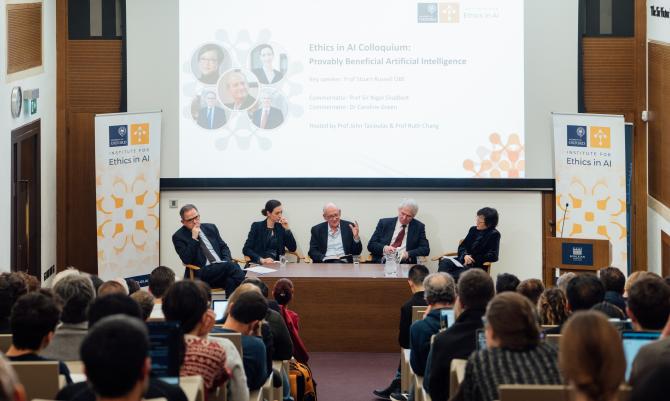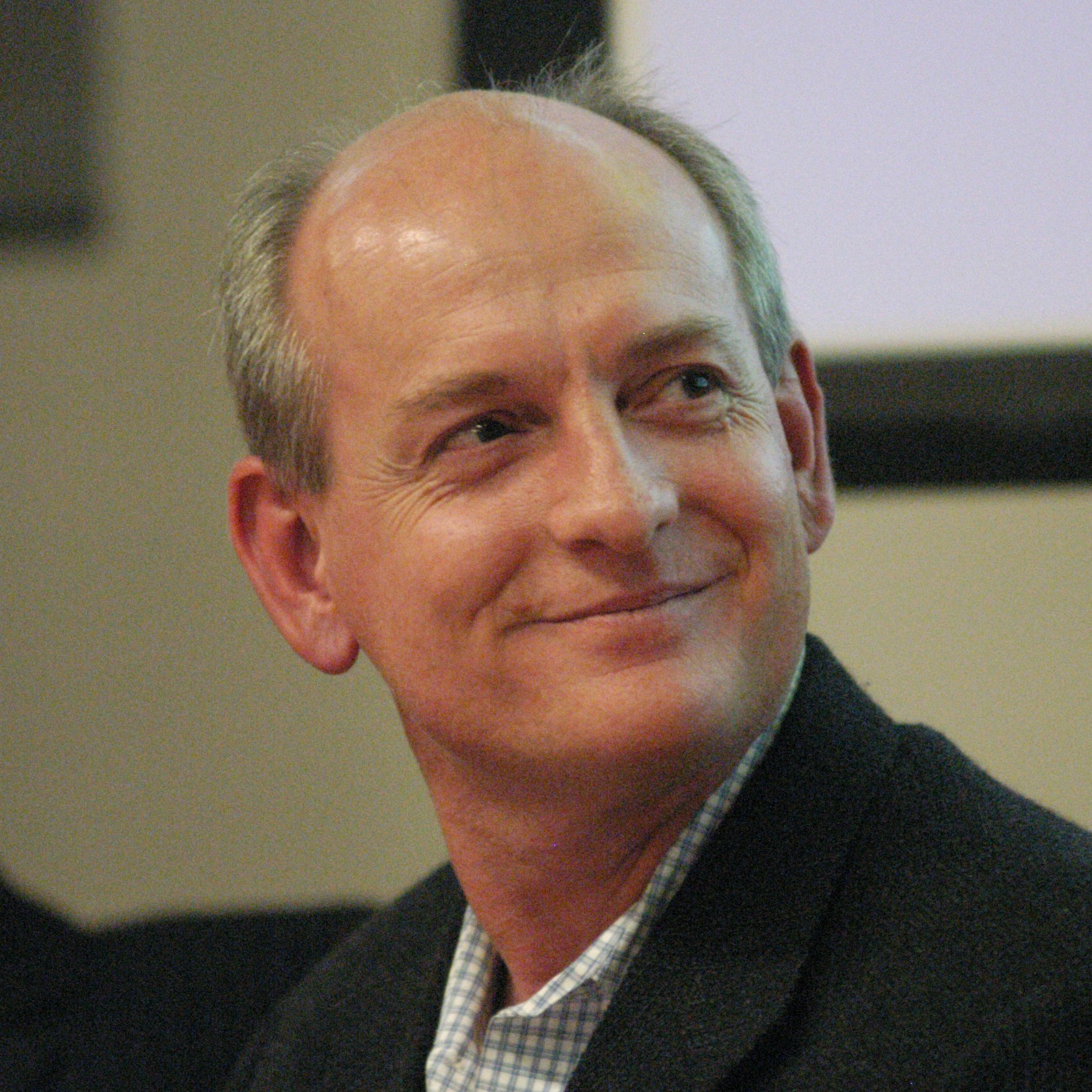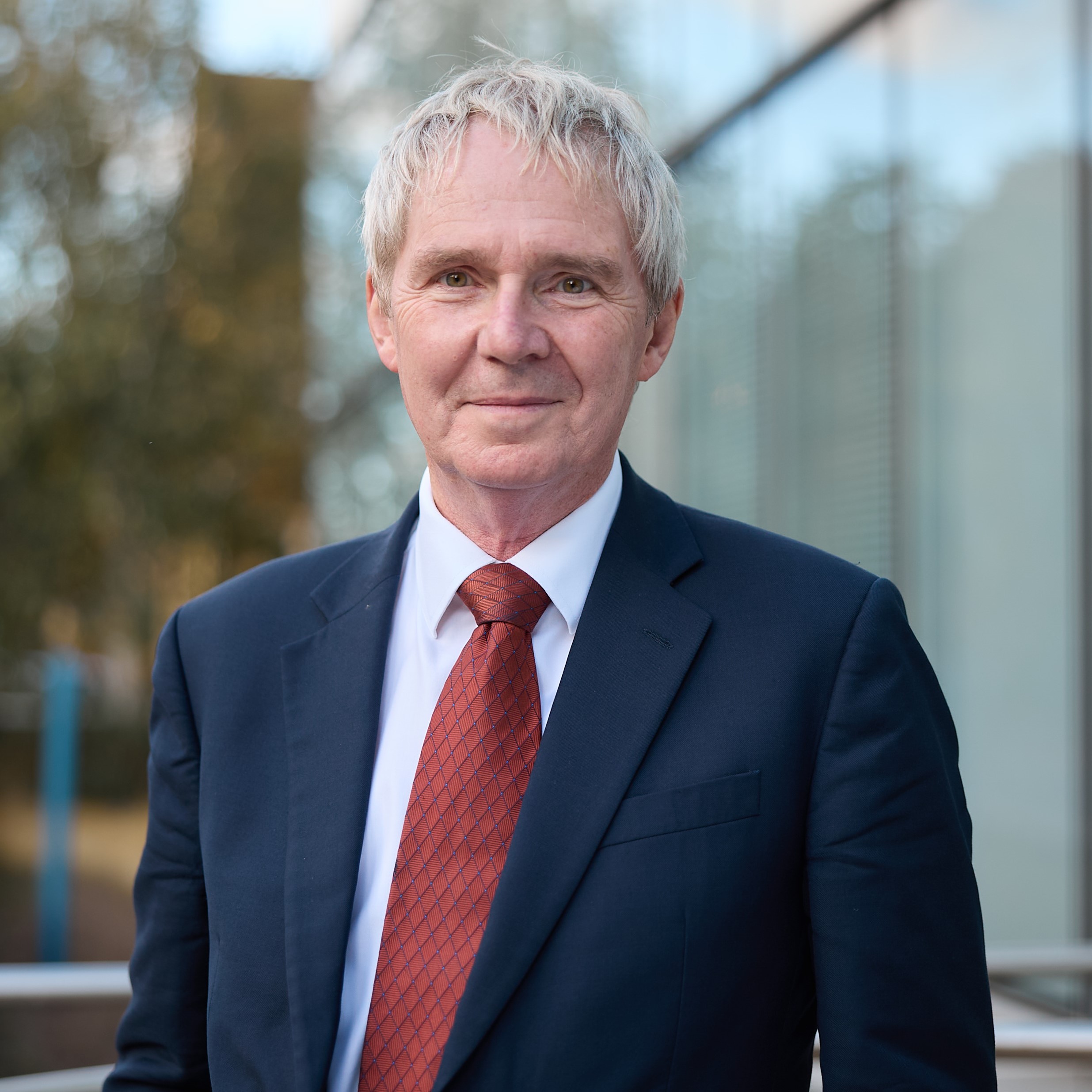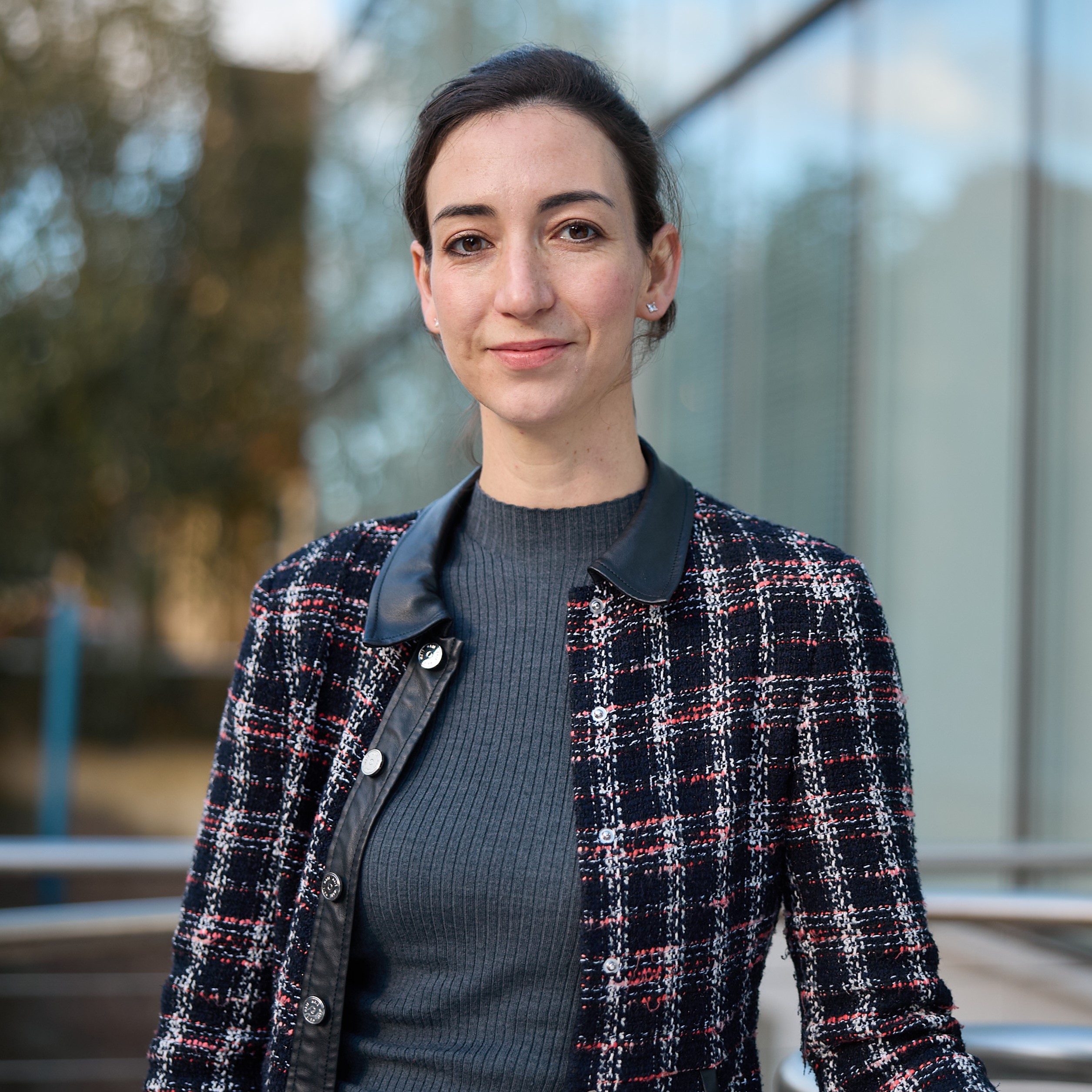
Abstract: In 1951, Alan Turing predicted the eventual loss of human control over machines that exceed human capabilities. I will argue that Turing was right to express concern but wrong to think that doom is inevitable. Instead, we need to develop a new kind of AI that is provably beneficial to humans. I will describe an approach -- assistance games -- that seems promising. On the horizon, however, are a number of open questions, some of them familiar to moral philosophers and government regulators and some of them new.
A joint event with the Philosophy, Law & Politics Colloquium Series, funded by the Hewlett Foundation and the Institute for Ethics in AI Colloquium Series.
A write-up of the event is available here.
The Institute for Ethics in AI will bring together world-leading philosophers and other experts in the humanities with the technical developers and users of AI in academia, business and government. The ethics and governance of AI is an exceptionally vibrant area of research at Oxford and the Institute is an opportunity to take a bold leap forward from this platform.
Every day brings more examples of the ethical challenges posed by AI, from face recognition to voter profiling, brain-machine interfaces to weaponised drones, and the ongoing discourse about how AI will impact employment on a global scale. This is urgent and important work that we intend to promote internationally as well as embedding in our own research and teaching here at Oxford.

Professor Stuart Russell is a Professor of Computer Science at the University of California at Berkeley, holder of the Smith-Zadeh Chair in Engineering, and Director of the Center for Human-Compatible AI and the Kavli Center for Ethics, Science, and the Public. He is a recipient of the IJCAI Computers and Thought Award, the IJCAI Research Excellence Award, and the ACM Allen Newell Award. From 2012-14 he held the Chaire Blaise Pascal in Paris. In 2021 he received the OBE from Her Majesty Queen Elizabeth and gave the BBC Reith Lectures. He is an Honorary Fellow of Wadham College, Oxford, an Andrew Carnegie Fellow, an AI2050 Senior Fellow, and a Fellow of AAAI, ACM, and AAAS. His book "Artificial Intelligence: A Modern Approach" (with Peter Norvig) is the standard text in AI, used in over 1500 universities in 135 countries. His research covers a wide range of topics in artificial intelligence, with a current emphasis on the long-term future of artificial intelligence and its relation to humanity. He has developed a new global seismic monitoring system for the nuclear-test-ban treaty and is currently working to ban lethal autonomous weapons.
Commentators

Professor Sir Nigel Shadbolt, FRS FREng FBCS, is the Principal of Jesus College and a Professorial Research Fellow in Computer Science at the University of Oxford.
He completed his undergraduate degree in Philosophy and Psychology at the University of Newcastle, graduating with 1st Class Honours in 1978. His postgraduate studies were in the Department of Artificial Intelligence at the University of Edinburgh. In 1983 he joined the Department of Psychology at Nottingham, where he established and led the AI Research Group. In 1992 he became the Allan Standen Professor of Intelligent Systems.
In 2000 he moved to Southampton’s School of Electronics and Computer Science. His research focused on the science and engineering needed to support the continued development of the World Wide Web and he led the Web and Internet Science Group. In 2009 he was appointed, along with Sir Tim Berners-Lee, as Information Advisor to the UK Government. This work led to the release of many thousands of public sector data sets as open data. In 2010 he was appointed by the Coalition Government to the UK Public Sector Transparency Board, which oversaw the continued release of Government open data. He continues to advise Government in a number of roles. He is Chairman and Co-founder of the Open Data Institute (ODI), based in Shoreditch, London. The ODI specialised in the exploitation of Open Data supporting innovation, training and research in both the UK and internationally.
He has always been fascinated by the link between innovation and research. He was a founder and Chief Technology Officer of ID protection company Garlik Ltd. In 2008, Garlik was awarded Technology Pioneer status by the Davos World Economic Forum and won the UK national BT Flagship IT Award. In December 2011 Garlik was acquired by Experian Ltd. In its 50th Anniversary year 2006-2007, he was President of the British Computer Society. He am a Fellow of both the Royal Academy of Engineering and the British Computer Society.
With over 500 publications, he has researched and published on topics ranging from cognitive psychology to computational neuroscience, Artificial Intelligence to the Semantic Web. In 2018 he published ‘The Digital Ape: how to live (in peace) with smart machines’, described as a ‘landmark book’. In May 2024 he published ‘As If Human’, which provides a new approach to the challenges surrounding AI.

Dr Caroline Green is the Institute’s Director of Research. Caroline's research focuses on AI and human rights, specifically in the fields of health and social care. Caroline holds a LLB (Hons) from the University of Edinburgh, an MSc in Human Rights from the LSE, a MA in Investigative Journalism from City University and a PhD in Gerontology from King's College London. As Director of Research, Caroline will be leading on a soon to be announced programme at the Institute.
Hosted by

Professor Ruth Chang is the Chair and Professor of Jurisprudence and a Professorial Fellow of University College. Before coming to Oxford, she was Professor of Philosophy at Rutgers University, New Brunswick in New Jersey, USA. Before that she was a visiting philosophy professor at the University of California, Los Angeles, and a visiting law professor at the University of Chicago. During this period she also held a Junior Research Fellowship at Balliol College where she was completing her D.Phil. in philosophy. She has held fellowships at Harvard, Princeton, Stanford, and the National Humanities Center and serves on boards of a number of journals. She has a J.D. from Harvard Law School.
Her expertise concerns philosophical questions relating to the nature of value, value conflict, decision-making, rationality, the exercise of agency, and choice. Her work has been the subject of interviews by various media outlets in the U.S., Canada, the U.K., Germany, Taiwan, Australia, Italy, Israel, Brazil, New Zealand, and Austria, and she has been a consultant or lecturer for institutions ranging from video gaming to pharmaceuticals to the CIA and World Bank.
